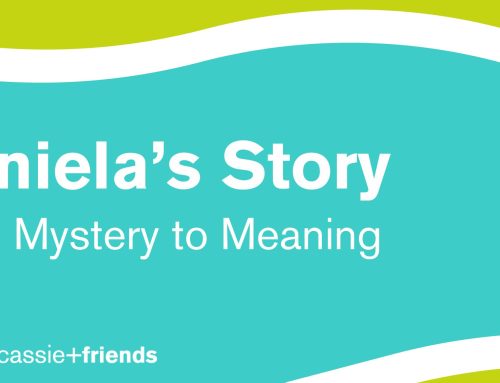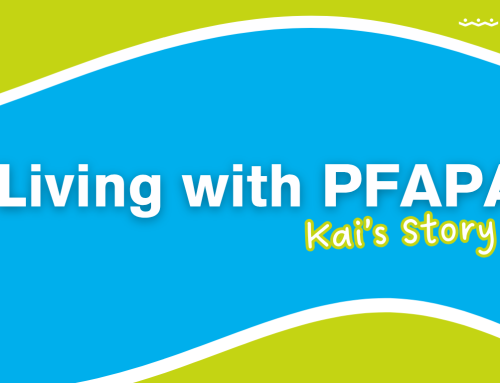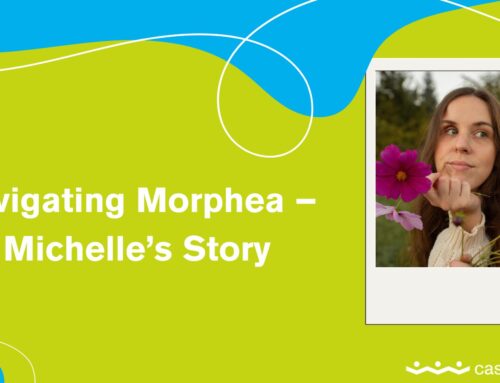At Family Day 2016, Cassie and Friends volunteer Alison Legge gave a powerful speech about Juvenile Arthritis and the effect it has on mental health. This February, Alison underwent bilateral TMJ replacement surgery to ease the pain in her jaw, and is currently having a speedy recovery. She is now the chair of Cassie and Friends’ newly formed Youth Leader Network, a group of young adults age 16 to 26 whose mission is to provide a platform for youth living with rheumatic diseases to connect and be empowered. Read her full speech below!
I’m beyond honoured to be standing in front of you today. First of all, honored to have the opportunity to talk to those of you that have dedicated your lives to finding a cure for Juvenile Arthritis. Second of all, I’m honoured to have the chance to talk to those of you that have fought arthritis and won. Lastly, I’m honored to get the opportunity to share my story.
I was diagnosed with Juvenile Idiopathic Arthritis at the age of 3, I know most, if not all, know what arthritis is and how it affects the joints. What you may not know is how it affects the day to day life of a child. I would say despite my JIA, my childhood was pretty normal; I played hockey, softball, and skied, and attended a regular school. Occasionally I would miss a class or a game if I wasn’t feeling great or I had an appointment, but other than that, there was nothing too out of the ordinary. There were moments when things got tough, I remember when I was eight, I lost the ability to open my mouth and chew. Unfortunately, by the time we realized it was arthritis the damage had been done, I was told I was going to have to get reconstructive surgery when I stopped growing to straighten out my jaw. But at the age of eight, that seemed like a world away. For the next couple years, I was on and off different medications, finally reaching a state of remission after starting a biologic. I had the surgery when I was 16, I missed three weeks of school and had a swollen face for six months. I figured that would be the worst of it.
I received early acceptance with a scholarship to the University of Oregon, October of my grade 12 year. Then things took a turn. The pain in my jaw came back, by January, I had half a regular opening. I was told it was muscular, but after 8 consecutive weeks of physiotherapy, there was little improvement. I was sent for an MRI; on the day of my commencement, I vividly remember putting on makeup in the bathroom when1 the phone rang. I could see from caller ID that it was my doctor. A few minutes later, both my parents walked downstairs and I knew it wasn’t good. I had severe joint damage in both TMJs as well as active inflammation. A month later, on my 18th birthday, I decided to withdraw my acceptance to Oregon. Having missed 42 days of school in the second term of grade 12, I didn’t think I would be able to succeed in the University environment. It was tough. Eventually we managed to get control of the inflammation, however I was still left with the residual damage, not only in my joints, but to my mental state.
What we often fail to realize is that when the inflammation goes away, that doesn’t necessarily mean we are okay. I have dealt with anxiety for as long as I can remember, but in that one year, it morphed into depression. I had no desire to leave the house, or see anybody other than my parents. I had to make a conscious effort to smile and make it seem like I was okay when I knew I really wasn’t. When I would see people in Oregon gear, I would fight back tears. I didn’t know how to move on with my life other than focusing on putting one foot in front of the other. I knew I couldn’t spend my year sitting around miserable. My sister got me a job working at a software company, although going to work wasn’t always easy, it got me interested in an important field and made my year off a lot more valuable. I also decided that I was going to fight back against arthritis, that at the end of the day, I didn’t want to say my year off went to waste. I signed up for the Joints in Motion marathon and with the help of my family and friends, managed to raise 12 000 dollars towards arthritis research.
September of 2014, I started my first term at the University of Oregon one year late. I am now a Junior, double majoring in Applied Math and Computer Science on track to graduate in four years. I still struggle with anxiety and depression on a daily basis, and some days I just get so tired. Tired of being the only 21-year-old that doesn’t drink, tired of constantly feeling like nobody believes me, tired of always being the person that cancels last minute. I just get so tired of fighting. But then I remember my parents, my sister, my brother, my amazing friends that have stuck by me and I realize who and what I’m fighting for. If it weren’t for them and their support, I probably wouldn’t be here today. I would be lying if I said the idea of living the rest of my life chronic pain didn’t scares me, but I have hope that science will one day get there.
The reason I’m saying all this, that I’m standing before you talking about something that I keep so private is that I want to break the stigma. For years, I have been ashamed to admit that I wasn’t mentally strong enough to beat the anxiety and depression on my own. I felt that if nobody asked me about it, that I just needed to get over it. But that’s not how these things work! Depression and anxiety are two very real things that kids living with arthritis are more susceptible to but are never talked about. It’s time for that to change. It’s time we start taking mental illness as seriously as we do inflammation. We need to reach a place where kids with JIA feel safe opening up about mental health issues. We need to stop thinking that the pain goes away when the inflammation does. With the help of Cassie and Friends, I think we can break down the stigma of mental illness just by helping kids realize they aren’t alone, and that there are people rooting for them and advocating for them every step of the way.
For a young kid, realizing that people have dedicated their entire life to finding a cure for juvenile arthritis and that people out there care can make all the difference, just like it did for me. Thank you.








Leave A Comment